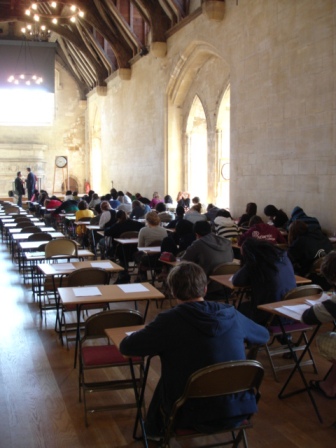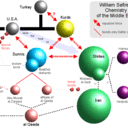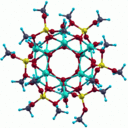Exams
- Tips to give to students on how to maximise their marks on each of the three exam papers
- Specific details of areas of difficulty on Papers 2 & 3 and how to teach your students to overcome them
- Fun ways of understanding objectives and using command terms
- Full explanation of grade descriptors and grade boundaries
- Examples of new questions with worked answers for experimental work on Section A on Paper 3
- Advice and new questions with worked answers to prepare your students for data response questions on Section A on Paper 3
- Practice Paper 1 exams for 'mocks'
- Full details on the whole examination process from how the exams are written to how they are marked and graded
- Advice on how to arrive at predicted grades
- Why your feedback on the exams is important
- Information and advice on Enquiry upon Results (EUR) and retakes
Introduction
We have come a long way since Henry Armstrong made the following statement:
“When Prof. Ayrton and I were appointed the first professors of the City and Guilds of London Institute we found ourselves in complete agreement that we would have nothing to do with teaching for examinations.
I am proud to say that the programmes of the Guild’s Colleges have never been disfigured by references to examinations as objects to be kept in view by students.”
Henry E.Armstrong
(Science Progress,1886)
Rightly or wrongly the examinations now have a central role in most (all?) teachers' and students' lives. The syllabus is written so that it is clear what can be examined and the exams are written using command terms which are commensurate with the level of objective being tested. The pressure is heavily on students to achieve certain high grades in order to continue into higher education.
This part of the Website looks at every aspect of external examinations.
Links
The main links accessible on the left and below breakdown as follows:
Essential Facts
This defines precisely the meaning of command term and explains the different levels of objectives. It covers grade descriptors and explains how the component grade boundaries and overall grade boundaries are arrived at together with figures giving the percentage of students attaining each grade.
Paper 1 (Multiple Choice)
The layout, timing, weighting and marks available are given and concrete advice is provided to give to students as to how to prepare for and answer Paper 1 and what the common pitfalls are. Contains practice papers containing new questions together with answers.
Paper 2
The layout, timing, weighting and marks available are given and concrete advice is provided to give to students as to how to prepare for and answer Paper 2 and what the common pitfalls are. The particular areas of chemistry that students have most difficulty with when answering Paper 2 questions are highlighted and teaching materials provided to help students overcome these difficulties.
Paper 3
The layout, timing, weighting and marks available are given and concrete advice is provided to give to students as to how to prepare for and answer Paper 3 and what the common pitfalls are. Practice questions together with answers are provided on both experimental work and data response for Section A of Paper 3.
The examination process
This section covers the whole examination process including the final subject report. This includes how the paper is actually written, marked, moderated and graded followed by advice on how to give predicted grades and feedback on the exams to the IB and when and how to apply for a remark.
FAQs about external assessment
Answers to questions that are often asked
Selected Pages

Retaking the exam 22 October 2018
Hopefully this should not be necessary but there are always a few students each session who are retaking the Chemistry exam....
more

Marking the papers 5 June 2022
When the examination is finished the scripts are sealed and sent off for scanning in the case of Papers 2 and 3 and to be...
more

Grade Awarding 5 June 2022
The Grade Award Meeting may take place either online or at IBCA in Cardiff shortly after 31 days have elapsed since the...
more

Chief Examiner's report 5 June 2022
After they have finished their marking all examiners write a report on the scripts they have seen. Once the Grade Award...
more

Commenting on the exams 5 June 2022
All teachers are actively encouraged to comment on each of the three papers at both SL and HL. This is not an empty exercise...
more

 IB Docs (2) Team
IB Docs (2) Team